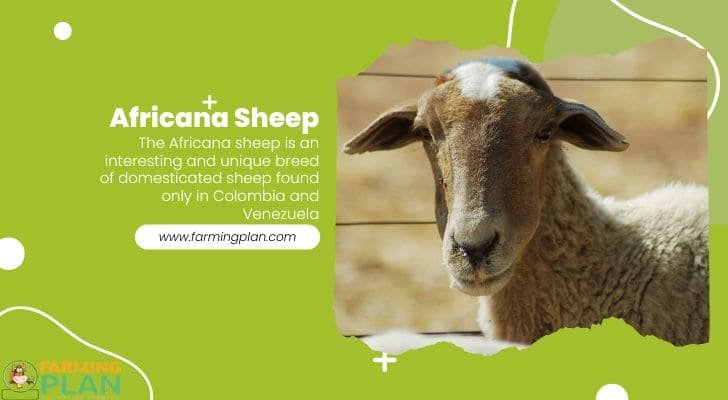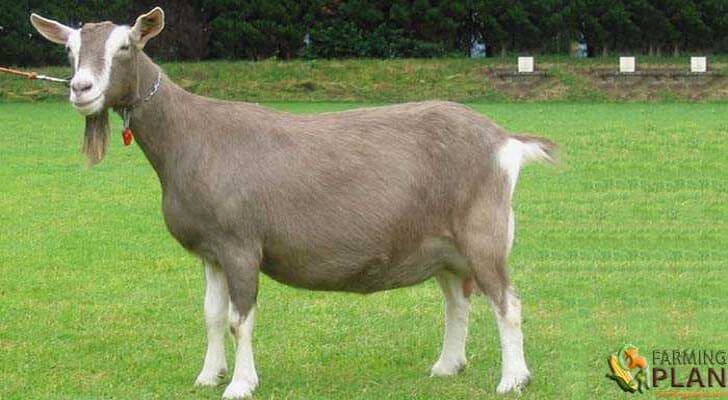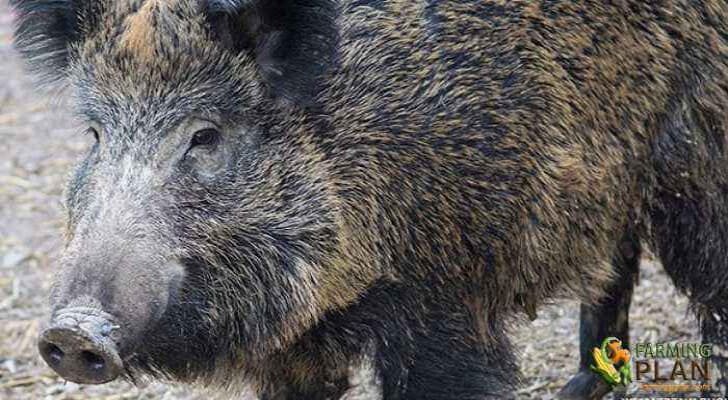Are you looking for a different breed of sheep to add to your flock? If so, the Africana may be just what you’re looking for. This unusual breed is found in Colombia and Venezuela, where it was bred for its meat. But don’t be fooled by their somewhat unassuming size! Africans are actually incredibly hardy animals and make excellent pets, offering unique traits that will delight any owner or breeder. In this blog post, we’ll take an in-depth look into why African sheep could be the perfect addition to your barnyard friends – read on to find out more!

Introducing The African Sheep
The African sheep is an interesting and unique breed of domesticated sheep found only in Colombia and Venezuela. This breed of sheep is not to be confused with other breeds as it has distinct characteristics, such as being polled and having a size similar to the Pelibüey. Interestingly, the Africana breed was specifically created for its meat so that farmers conversant in raising this breed could produce high-quality meat. It is thus both rare and valuable in its production as well as its uniqueness, qualities that contribute both to its exclusive origins as well as making it highly sought after.
Characteristics
The African sheep is an interesting domesticated breed, known for its poll and its relatively small size. Highly prized for their meat, the Africana is commonly found in both Colombia and Venezuela, living off the land of these two South American countries. Despite their diminutive size, the Africana has been bred to produce a considerable amount of butterfat, meaning that this lovely little breed is also surprisingly productive when it comes to milk production. As such, the Africana is an ideal animal for those searching for a dual-purpose breed ticking both the ‘meat’ and ‘milk’ boxes on their livestock list!
Usage
Coming from the warm climates of Colombia and Venezuela, African sheep are rising in popularity for their flavorful meat. Primarily used for its meat, this moderate-sized breed is a valuable source of sustenance in its originating countries. The animal itself is polled, has low maintenance requirements, and gives birth with ease. In some areas of South America, Africana sheep also provide other resources such as wool and milk. As the demand for more sustainable forms of protein grows, the unique characteristics of Africa have put them at the forefront of small livestock farming operations.
Feed
The African sheep are a docile and hardy breed, originating in South America and currently raised as livestock in Colombia and Venezuela. They tend to be on the smaller side compared to other breeds, but their feed is still an important element of their care. These animals are largely grass-fed, although their diet can also include some hay and other supplemental feed like grain or minerals depending on the pasture conditions. Providing quality forage for these animals is vital for them to stay healthy and thrive, so monitoring them regularly can help ensure that they stay well-fed and productive.
Special Feature
The African sheep is a truly special breed. Not only are these breeds polled, meaning they do not possess horns, but they are also of relatively small size compared to other common breeds. Additionally, these gentle creatures are used primarily for meat production, and so present an efficient way to grow food in a sustainable manner. For these reasons, the African sheep is becoming an increasingly popular breed throughout Colombia and Venezuela.
Care
Proper care and maintenance is key to ensuring the health and well-being of your African sheep. With the right diet, housing, exercise, and health monitoring regimen, you can keep your flock healthy and happy. Start with establishing a balanced diet consisting of both grasses and commercial feed to give your sheep the nutrients they need. Make sure that they have access to clean, dry bedding since they are prone to hoof problems. Provide adequate space in their habitat so that they’re able to roam freely and run around for exercise. Be mindful that African sheep need more grooming than other breeds due to their thick wool coats so provide additional brushing during shedding season. Also, consistent vetting is critical for early detection of potential illnesses that may harm the flock’s overall health!
Production
The African sheep is an incredibly valuable addition to many South American farms, as these animals have a wide range of uses. Not only can they be raised for their meat, but with its impressive wool production, this breed is also used in the wool industry. In addition, their size and polled qualities make them ideal for a variety of everyday needs on a farm like herding cattle, controlling trends, and providing fertilizer. With all these benefits combined, it is no surprise that the African sheep has become so popular among those living in areas where this remarkable breed resides.
Financial Considerations
Owning an African sheep can be a very cost-effective decision for livestock owners. This breed is known to be disease-resistant and hardy, so the costs associated with health-related issues are minimal. Additionally, these sheep feed quite efficiently and convert this food into valuable products like milk and meat, meaning you get great value from what you put in. Although upfront costs for housing may be higher than other breeds of sheep, this money can quickly be recouped due to the productive nature of the African sheep. Therefore, if you are looking for a financially wise approach to livestock farming, investing in an African sheep could be the right move for you.
Finding a Reputable Breeder
If you choose to adopt an African sheep, then you will want to make sure you’re getting it from a reputable breeder or shelter. Do your research: look for reviews and testimonials of past customers, ask friends and family for suggestions, and take time to contact potential breeders or shelters. You may even want to consider making a trip to the facility with your family so you can get a firsthand look at the quality of animals they have available. Learning as much as possible about the South American breed of African sheep will help ensure that you get a healthy, well-socialized animal that will fit in well with its new home.
FAQ
What breed is Afrikana?
Afrikana is a newly developed breed of cat created in 2021. This breed originated through the cross-breeding of several existing breeds and was developed specifically for those who love the exotic nature of cats but want one that fits more easily into their life.
Is African village dog a breed?
African Village Dogs (also known as “pariah dogs”) are not a breed, but rather they can be thought of as a type or category of domestic dog. In Africa, these dogs have been living near humans for thousands of years and represent the closest thing to the ancient ancestor from which all modern breeds have descended.
What is the African dog called?
The African Dog, also known as the African Wild Dog or Painted Hunting Dog, is native to sub-Saharan Africa and is renowned for its distinctive black-and-white spotted coat. It has one of the lowest population numbers among all large carnivores, with some estimates indicating that only 6,600 adults remain in the wild.
Conclusion
In conclusion, the African breed of sheep is truly unique and deserves appreciation. This breed is especially rare in most parts of the world and only found in certain regions of South America. The African sheep can be used for a variety of purposes, including meat production and wool production. Learning about their physical characteristics and understanding their special needs is important for any owner to be aware of before making a purchase. With proper diet, housing, exercise, and health care, you can ensure that your African sheep will stay safe and healthy throughout its life. Finally, if you decide to adopt or find these animals a breeders or shepherds should always be chosen with caution. With this knowledge, you are now better prepared to understand what it takes to own an African sheep.


